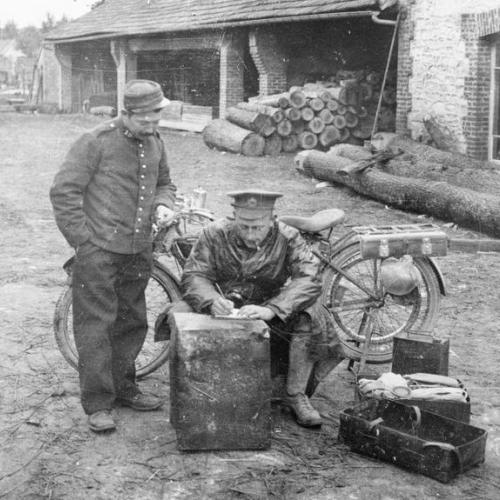Women

TOUGH INTERROGATIONS. Philippine V. was born in Brussels. Working as a milliner, the 43-year-old spinster lived in Saint-Gilles. She was arrested in 1917 for spying and kept in Saint-Gilles prison.
Philippine’s activities for the Belgian and British secret services were exposed on 20 April 1917, whereupon she was arrested and kept in Saint-Gilles prison until 12 June. Held incommunicado for 13 days, she was interrogated day and night, with paltry amounts of poor-quality food for her only sustenance. In the wake of her confinement, she suffered from serious respiratory disorders and exhaustion. She had to be fed up and could not work for 10 months.
In 1949 she wrote a letter to the King out of sheer desperation:
During the 1914-18 war I was held in Saint-Gilles prison (…). In the wake of this confinement I developed pernicious anaemia, from which I still suffer from time to time. I was involved with the Belgian and British secret services, which acknowledged the value of my contribution by awarding me (…) the 1914-18 civil cross 2nd class (…) and the British Medal. I have never asked for support of any kind (…). I am 74 years old and there is no-one left who can help me.
HIDING PLACE. Born on 9 September 1890 in Rolleghem Maria V. lived in Kuurne. As a member of the resistance, she lent her support to the allied armies. She was arrested in 1915 and detained in several Belgian prisons.
Maria offered help to people from whom compulsory labour was exacted, helping to hide them. She also looked after refugees helping them to cross the Dutch border via France. The Germans accused her of spying for which she was arrested twice, in November 1915 and in 1917.
A FAMILY IN TURMOIL. Louis G., a mechanic, was born on 27 July 1870 in Brussels. He was married to Louise H., born on 10 April 1872 in Huy and they lived in Gembloux with their four children: Marguerite (born in 1887), Jean (born in1900), Myriam (born in 1905) and Robert (born in 1909). Louis was jailed in February 1916 for resistance activities, while his wife and daughter Marguerite were also put in prison.
Louis was detained from 11 February 1916 to 11 November 1918, being moved from prison to prison: Namur, Reinbach, Cassel-Welheiden and Vilvoorde. He was arrested for spying: he arranged the transport of letters entering the Netherlands, he recruited young people living in Gembloux by encouraging them to fight alongside the army and helped them to cross the Dutch border. The German War Council handed him 2 death sentences for taking young people into the Netherlands and a prison sentence of 3 years and 3 months for carrying letters.
SILENCE. His wife Louise was arrested the day before her husband for failing to report the activities of her spouse. She was detained for four and a half months, first in Namur then in Germany. Louis’ daughter Marguerite suffered the same fate as her mother. She was kept in Namur prison for 67 days for failing to betray her father.
ASSAULT AND BATTERY. All 3 of them were in an extremely weak state upon their return from prison. Louis had been assaulted and ill-treated during the proceedings. His wife and daughter suffered from severe weakness for several months.
I am pleased to be able to say that when they were arrested (…), they had the opportunity to betray me, revealing my name, which was written under the pseudonym “Laf” in the case taken by the Germans. They accepted their sentences.
THREE GENERATIONS OF RESISTANCE. Pauline D., a furniture dealer, was born in Wezembeek on 24 July 1855. She was the widow of Jean V. Along with her daughter Joséphine and granddaughter Rose, she carried espionage letters from Belgium to the Netherlands. These railway-related letters were forwarded to the delegate to the Netherlands of the Minister for Railway, Postal and Telegraph Services.
Pauline, Joséphine and Rose never hesitated for a second in spite of the danger involved. They carried military reports about German installations on the frontline from Belgium to the Netherlands. All three of them were arrested on 29 September 1915. Just after the war, Jaime Mir, their contact, testified to their patriotism.
SENTENCED. On 20 January 1916, Pauline, Joséphine and Rose were hauled before the Antwerp War Council. Pauline was sentenced to 2 years in prison, ordered to relinquish all her assets and pay a 2,000 Marks fine. Joséphine and Rose were sentenced to one year in prison. Pauline was first of all held in the Saint-Gilles and Antwerp prisons before being deported to Siegburg. When she was released on 18 January 1918, she was completely destitute.

![La prison de Gand, 1918 - BNF / [photographie de presse] / [Agence Rol], 52572 - domaine public](/sites/default/files/content/n53005839_jpeg_1_1dm_prison_gand_0.jpg)
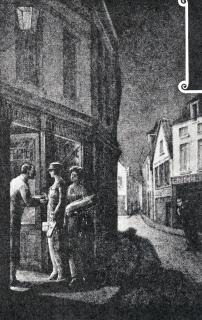
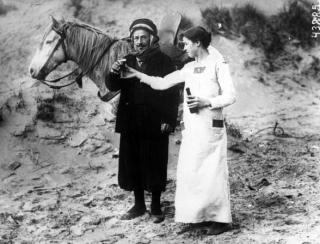
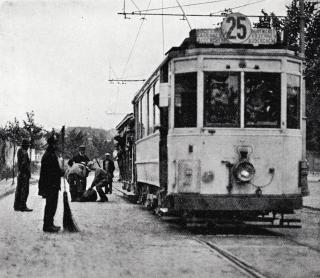
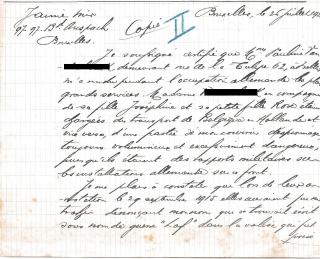
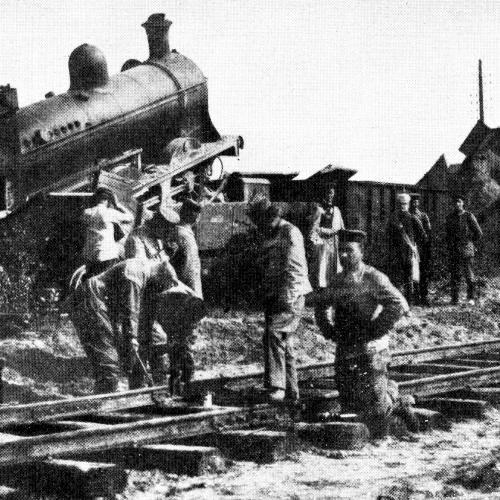
![A Villers-Cotterêts, exécution d'un espion [debout, les yeux bandés devant le peloton], 1914 - [photographie de presse, Rol, 43451 - Domaine public A Villers-Cotterêts, exécution d'un espion [debout, les yeux bandés devant le peloton], 1914](https://belgiancivilians14-18.arch.be/sites/default/files/styles/story_linked/public/uploads/fields/field_story_img_1x1/n6932868_jpeg_1_1dm_execution_espion.jpg?itok=vNRZiKoQ)
